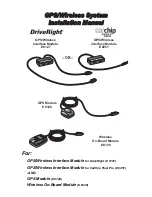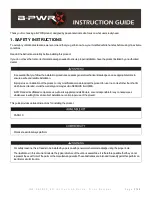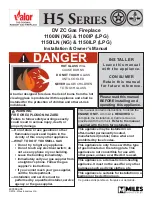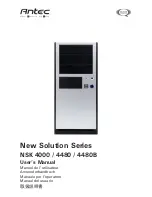
There is another device known as an Optoisolator which serves as the
high/low voltage isolator between the triac and the microprocessor.
When the growth chamber starts experiencing temperature problems
and/or variations, due to known controller malfunctions, these two
components become prime suspects. The reason being they are under
higher operating stress than other components.
If the growth chamber starts experiencing temperature problems such as no
heat, constant heat, or "creeping" upward heat, then follow the
troubleshooting instructions below. These instructions require the use of a
voltmeter being able to measure DC and AC voltages and preferably a
digital voltmeter.
Warning
The following troubleshooting instructions require that power be
on. Only qualified service personnel should perform these procedures.
s
A) Remove the control cover and familiarize yourself with the power
supply assembly #3176818. Locate the Triac (Q2), the Opto-isolator
(U1), resistor (R4). Also locate the test point #2 (TP2). The first
measurements will be DC voltage measurement, so a DC scale of at
least 10 volts should be selected. Connect the negative lead to TP2.
This is DC ground. Also locate the terminal block (TB1).
B) This first section will be to verify the heater command is correct from
the microprocessor, through the optoisolator, and through the triac
when the growth chamber is NOT requesting heat. The steps in this
section must be followed in succession.
1. Select a setpoint temperature at least 10° below what the actual
temperature is. The growth chamber should not be requesting heat
as indicated by the "Heater On" indicator lamp on the front panel.
It should not be on continuously, or even flashing.
2. Measure the voltage at U1-Pin 2 with respect to TP2. It should be
no less than 4 volts DC.
3. Measure the DC voltage across R4, since the growth chamber is
not requesting heat, there should be no current flowing through
this resistor, making the voltage drop equal to 0 volts.
4. If the last two steps are not as stated, then most likely the CPU
board is bad and should be replaced.
5. Switch the voltmeter to an "AC Volts" scale capable of reading 120
volts.
4-4
Plant Growth Chamber
Thermo Scientific
Section 4
Service
Possible Solutions
(continued)
















































